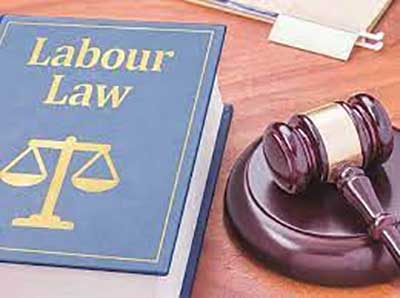Relevance: GS-2: Parliament and State Legislatures—Structure, Functioning, Conduct of Business, Powers & Privileges and Issues Arising out of these
Key Phrases: Labour code, Private Member’s Bill, Legislature
Why in news?
- CPI (M) floor leader in Rajya Sabha Elamaram Kareem has introduced a Private Member Bill in the Upper House to repeal the four labour codes.
- Titled as the Labour Codes (Repeal) Bill, it seeks to repeal the
- Code on Wages,
- Industrial Relations Code,
- Code on Social Security and
- Occupational Safety, Health and Working Conditions Code.
What is a Private Member's Bill?
- It is a bill which is tabled by a non-minister. Hence, it can be tabled by Opposition members, independently elected, nominated members or by members of ruling party who are not ministers
- Aim of such bill is to draw the government’s attention to what they might see as issues requiring legislative intervention
- Difference vis-a-vis Government Bill
- The admissibility of these bills depends upon the presiding officer of the house (Speaker in case of Lok Sabha and Chairperson in case of Rajya Sabha)
- Before such a bill is listed for introduction, the Member, who wishes to table the bill, must give at least a month’s notice for the House Secretariat to examine it for compliance with constitutional provisions and rules on legislation.
- Such a bill can be only introduced and discussed on Fridays, whereas Government bill can be introduced and discussed any day
- In case of multiple Bills, a ballot system is used to decide the sequence of bills for introduction.The Parliamentary Committee on Private Member's Bills and Resolutions goes through all such Bills and classifies them based on their urgency and importance
Specific Requirements for tabling such a Bill
- There are specific stipulations regarding the introduction of a Private Member’s Bill when it involves either any expenditure from the Consolidated Fund of India, delegation of legislative power to any executive authority, or an amendment to a principal Act. Further, for a Bill related to a subject where the previous nod or recommendation of the President is needed, the MP promoting the Bill has to attach a copy of such permission.
- In Rajya Sabha : a member can give a maximum of three notices for introduction of a Private Member Bill during any session
- In Lok Sabha : a member cannot introduce more than four Bills during a session although he or she can authorise “any other member to introduce the Bill, in which case the member who introduces the Bill becomes the member in-charge of the Bill
When Can a Private Member’s Bill Be Introduced?
- The LS Secretariat says that “the last two-and-a-half hours of a sitting on every Friday are generally allotted for transaction of Private Members’ Bills". However, it adds that the Speaker may “in consultation with the Leader of the House, allot any day other than a Friday for the transaction of private members’ business". Also, in case there is no sitting of the House on a Friday, the Speaker may allot the stipulated time “on any other day in the week" for private members’ business.
History of Private Bills
- A report by PRS Legislative Research shows that no private members’ bill has been passed by parliament since 1970 when the ‘The Supreme Court (Enlargement of Criminal Appellate Jurisdiction) Bill, 1968′ was enacted.
- In the year 1956, a maximum of six private member bills were passed
- In 14th Lok sabha, out of 300+ Private member’s Bills introduced
- A paltry of 4% were taken up for discussion, whereas, 96% lapsed without even a single dialogue
- The decision on which private member’s bill were to be discussed was taken with the use of ballot
- The 16th Lok Sabha (2014-19) witnessed the highest number of Private Member Bills introduced (999) since 2000.
Way Forward:
- But given the relatively short time allotted for their discussion and the fact that it is the government of the day, with its majority in Lok Sabha, which hogs the legislative business during a parliamentary session, most Private Members’ Bill lapse without discussion. For example, of the 328 such Bills introduced in the 14th Lok Sabha, only 14 (4.3 per cent) were taken up for discussion while none were passed. A true democracy reflects participation of all with due importance to the legislative agenda of the opposition in particular.
Source: The Business Standard
Mains Question:
Q. Compare and Contrast between Private bills and Government Bills.









